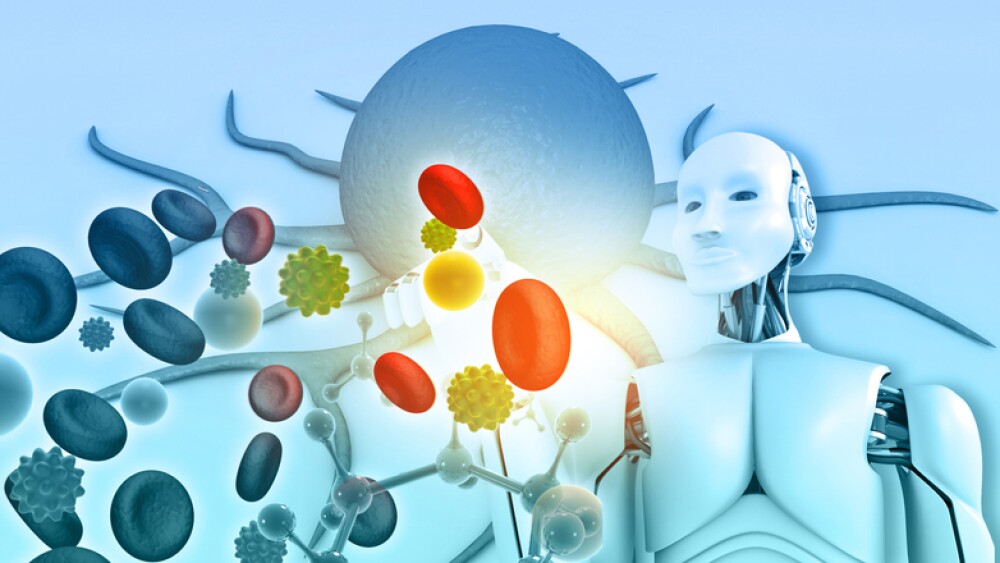Novel Nanotechnology Molecular Sensing Approach Achieves Laboratory RT-PCR Levels of Accuracy, Sensitivity and Specificity at Point of Care
Novel Nanotechnology Molecular Sensing Approach Achieves Laboratory RT-PCR Levels of Accuracy, Sensitivity and Specificity at Point of Care
BALTIMORE, May 06, 2021 (GLOBE NEWSWIRE) -- RNA Disease Diagnostics, Inc. (RNADD) announced today the publication of a stepwise protocol for an RNA-extraction-free nano-amplified colorimetric test (NACT) for COVID-19 in the esteemed journal Nature Protocols. The test uses a unique dual-pronged molecular sensing approach that integrates nucleic acid (NA) amplification and plasmonic sensing to rapidly detect SARS-CoV-2 in point-of-care settings.
The gold standard for detecting an active COVID-19 infection uses reverse-transcription, polymerase chain reaction (RT-PCR), which requires labor-intensive, lab-based protocols for viral RNA isolation, lysis and removal of inhibiting materials. This poses significant hurdles to widespread, affordable testing.
"Our molecular sensing test offers a low-cost, rapid method of screening for COVID-19, with minimal instrumentation, making it ideal for use in a variety of settings, and particularly in places with limited resources," said Allan Oberman, co-Founder and Chairman of RNADD. "Importantly, this test can easily be adapted to diagnose other infectious diseases. The readout of the test can be monitored using a handheld optical reader to obtain a quantitative response, so we anticipate this protocol will be widely used to develop biosensors for molecular diagnostics more broadly."
The RNA-extraction-free NACT uses plasmonic gold nanoparticles capped with antisense oligonucleotides (ASOs) to detect the amplified nucleic acid from SARS-CoV-2, the virus that causes COVID-19. The ASOs are specific for the SARS-CoV-2 N-gene, and when they bind to their target sequence the plasmonic gold nanoparticles aggregate. This highly specific agglomeration step leads to a change in the plasmonic response of the nanoparticles.
The Nature Protocolspublication, authored by researchers at the University of Maryland, Baltimore, represents an extension of the previously published protocol in ACS Nano in May 2020 and in October 2020, with modifications designed for higher sensitivity and specificity. When tested using clinical samples, the accuracy, sensitivity and specificity of the test were found to be >98.4%, >96.6% and 100%, respectively, with a detection limit of 10 copies/μL, as reported in Nature Protocols.
RNADD has successfully used the technique to rapidly identify SARS-CoV-2 RNA from a wide variety of sample types, including nasal swab samples and artificial saliva spiked with purified SARS-CoV-2 RNA. The applicability of this protocol can be further expanded to cover other infectious diseases caused by other viruses or bacteria by simply redesigning the ASO sequences to selectively target RNA of the varying biological targets.
About RNA Disease Diagnostics
RNA Disease Diagnostics (RNADD) was formed to create a best-in-class rapid and accurate molecular diagnostic technology platform that will contribute to the prevention of infectious disease transmission and to better the health of the citizens of the world. The Company plans to leverage its proprietary Antisense RNA diagnostic platform across multiple diseases and to create highly accurate, quick, affordable, and minimally invasive disease diagnostic testing kits. Its initial focus is to deploy COVID-19 Antisense diagnostic Point Of Care (POC) and Home Use Test (HUT) rapid diagnostic testing kits. For more information, visit www.rnadiseasediagnostics.com.
Contact:
Stephen Kilmer
Investor & Public Relations
stephen@kilmerlucas.com
Direct: (646) 274-3580




